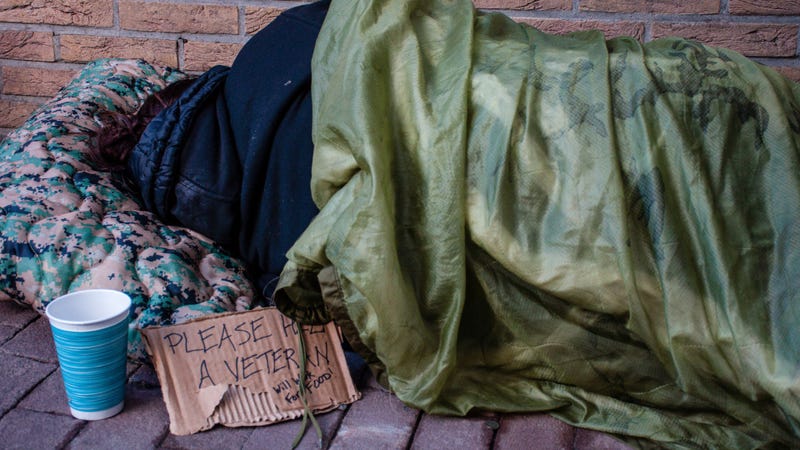
Policy changes have been announced to help more veterans receive assistance under the Housing and Urban Development - Department of Veteran Affairs Supportive Housing (HUD-VASH) program.
VA benefits received by homeless veterans with service-connected disabilities will no longer have that income used when determining eligibility for certain supportive housing developments as a result of the HUD’s policy changes.
“No veteran should ever have to experience homelessness, but when they do, they should not face barriers to getting help they deserve,” said HUD Acting Secretary Adrianne Todman in a release. “This policy change will ensure that veterans who are receiving the disability benefits they earned through service and sacrifice can access the housing assistance and supportive services they need to resolve their homelessness.”
HUD-VASH pairs rental assistance through housing vouchers targeted to veterans experiencing homelessness from HUD with case management and other supportive services provided by VA. VA homeless program staff at local VA medical centers identify veterans experiencing homelessness and refer them to public housing agencies that issue vouchers to eligible veteran and their families. VA staff provide case management and other “wrap-around” supportive services to assist the veteran household in finding and retaining rental housing and connecting to health care, employment, and other supports.
“This is a critical step forward that will help veterans nationwide – and bring us one step closer to our ultimate goal of putting an end to veteran homelessness for good,” said VA Secretary Denis McDonough.
Under the policy changes, public housing agencies that administer HUD-VASH are required to set the initial income eligibility for veterans at 80 percent of Area Median Income, rather than 50 percent of Area Median Income. The agencies must also adopt an alternative definition of annual income for applicants and participants of the HUD-VASH program that excludes veterans’ service-connected disability benefits when determining eligibility.
HUD has been working with theTreasury Department to determine the effect of the alternative income definition for HUD-VASH participants seeking housing subsidized by Low Income Housing Credits. Treasury expects to issue guidance on this issue soon. HUD will also encourage state and local governments to make corresponding changes in their subsidy programs to ensure that all veterans experiencing homelessness have access to supportive housing.
The revised HUD-VASH operating requirements also include additional policy changes that will improve the administration of the HUD-VASH program. In addition to these policy changes, HUD awarded $20 million available for additional administrative fee funding to 245 public housing agencies in 43 states currently administering HUD-VASH.
HUD-VASH has helped more than 200,000 veterans exit homelessness and obtain permanent affordable housing since it began in 1992.
Reach Julia LeDoux at Julia@connectingvets.com.
